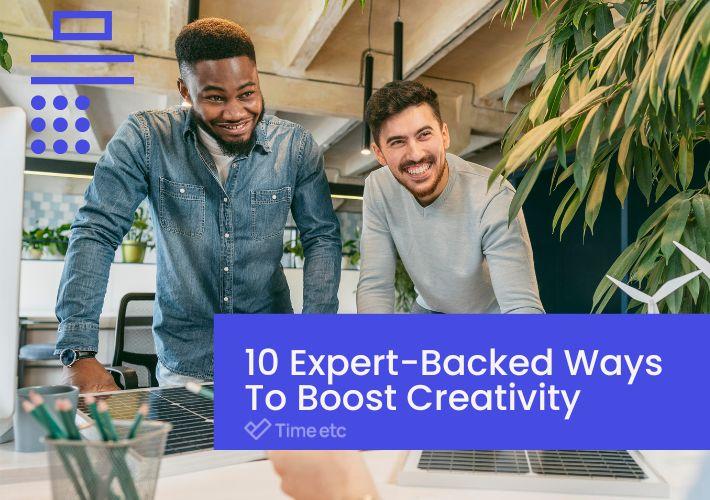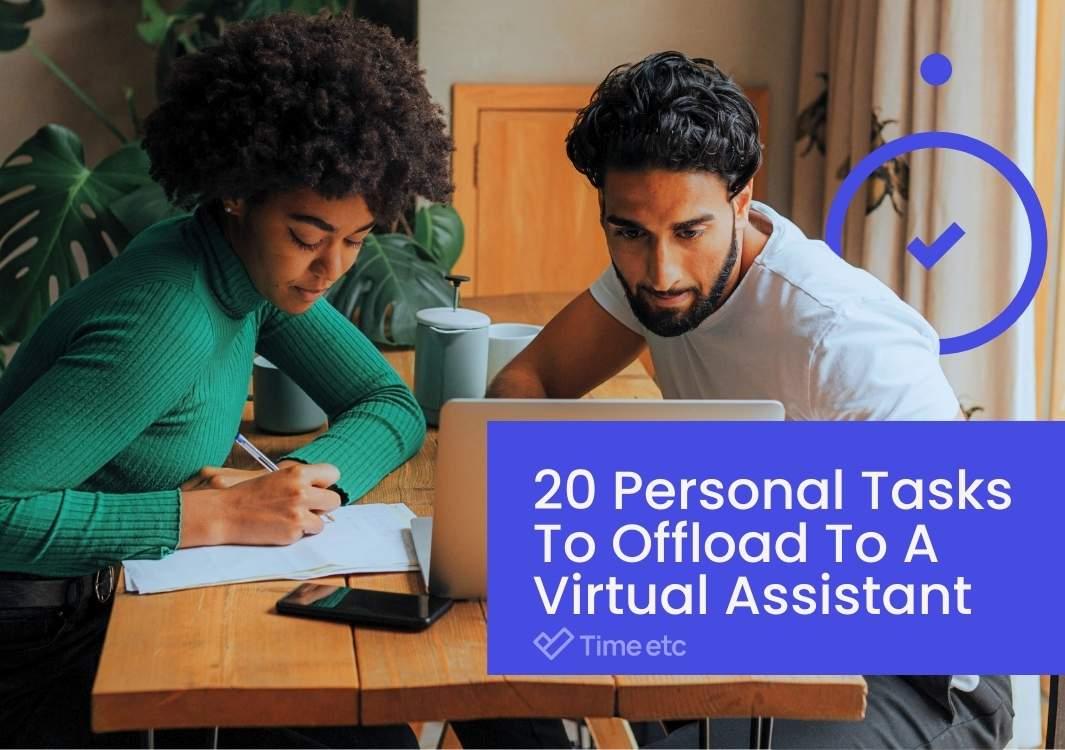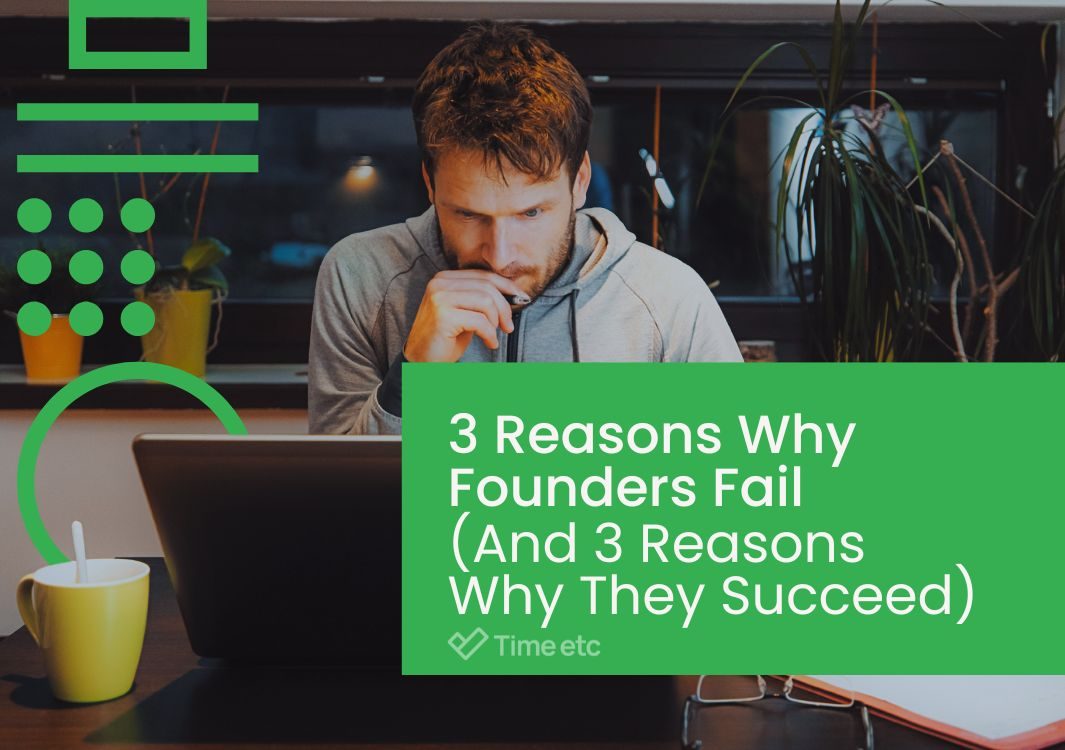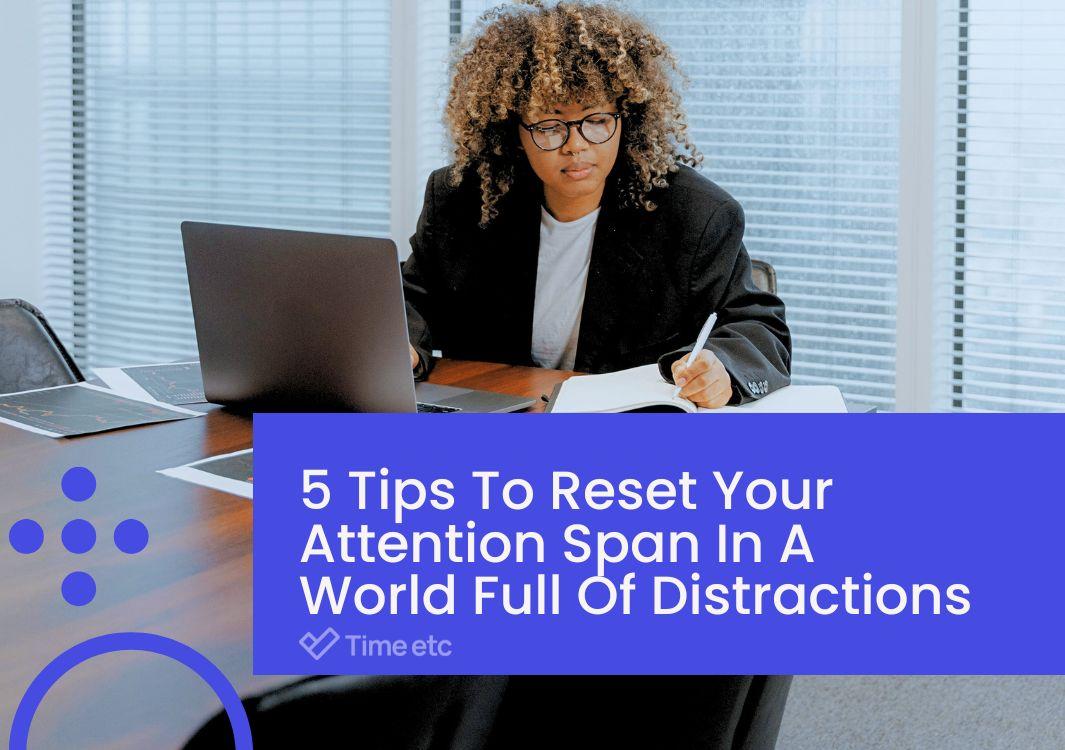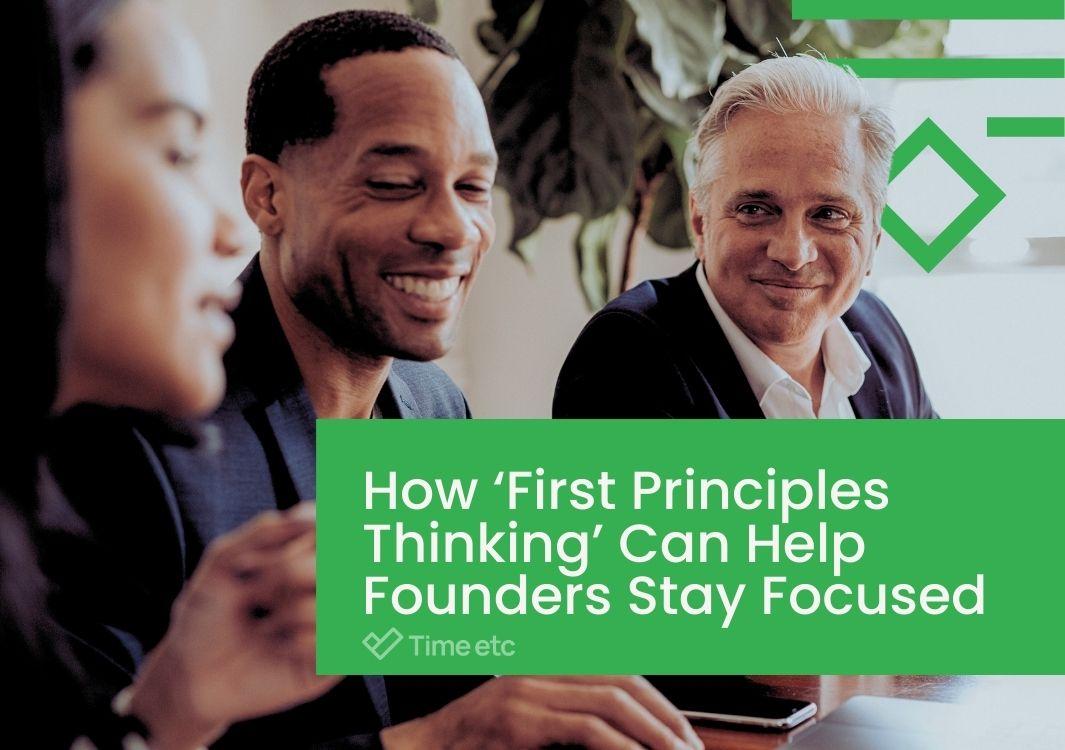In a world fueled by innovation and constant change, creativity has emerged as the driving force behind groundbreaking ideas, transformative solutions, and revolutionary breakthroughs.
But when you're working so hard and putting out fires across your business, it's hard to fire up creativity at will. Stress, worry, and frequent interruptions are all par for the course for business owners, but they can be the enemy of creativity.
Thankfully, there is a lot of research into how to fire it up again.
We're tapping into the wisdom of experts who've made it their mission to understand how our imaginations tick. Whether you're aiming to level up at work, crush those creative blocks, challenge yourself, or simply inject some innovation into your daily grind, these expert-approved techniques are here to help you along your creative journey.
Let's dive in!
1. Time your workouts
Staying active is an excellent idea for business owners. It helps with mood and building resilience. But if you want to boost your own creativity, timing is everything.
According to a 2005 study, even just 30 minutes of aerobic exercise boosts creativity and problem-solving for the following two hours.
So, if you want to be at your best, try scheduling a half-hour workout before you need to get those creative juices flowing.
2. Go for a walk
Ever find yourself stuck at your desk, wrestling with problems? Well, here's a thought—maybe staying put is what's keeping you stuck in those mental roadblocks.
As a business owner, incorporating short walks into your daily routine can be a game-changer. Researchers at Stanford University found that just walking around can boost creativity by a staggering 60%. Not only does it provide a break from the demands of work, but it also gives your mind the opportunity to wander and generate fresh ideas. Plus, the physical activity itself can boost your mood and overall well-being.
The best thing is that the environment wasn't as big a factor as we might have assumed. So, don't worry if your office isn't beside a park or woods. The key is to get walking, even if it's just around the office.
3. Hide your phone
Let's be honest, we all love our smartphones. They're a great way to stay connected with the world and provide an endless source of entertainment. However, a recent study shows that simply having your phone on your desk can take up precious cognitive real estate.
The authors found that our 'limited-capacity cognitive resources' can be taken up just by seeing a smartphone, which can reduce our attention and ability to think to full capacity.
While it may be tempting to always keep our phones within reach, it's worth considering the potential impact they can have on our cognitive abilities—especially our creativity.
So, next time you need to brainstorm, put your smartphone in a drawer and feel the ideas begin to flow.
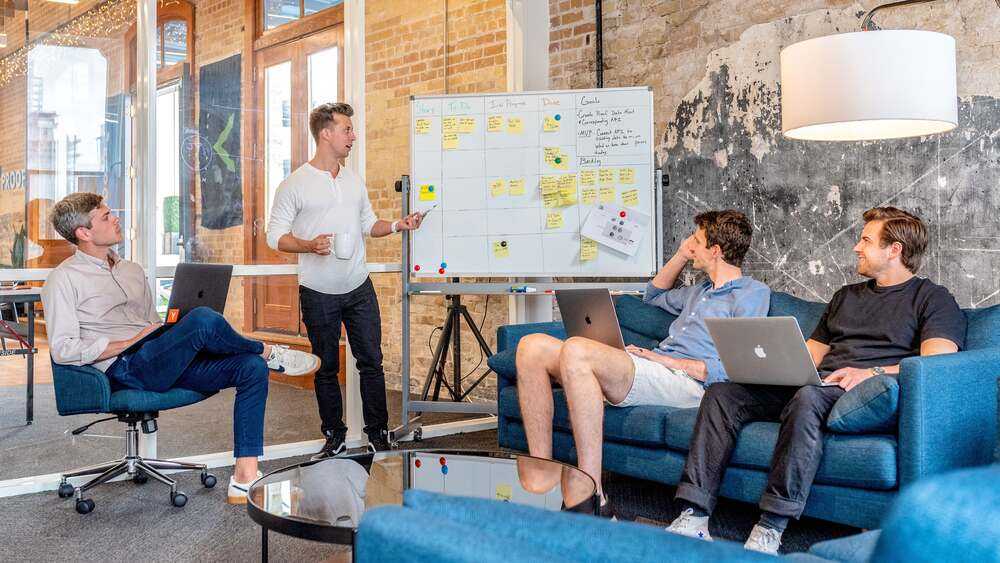
4. Bring the outside in
'Biophilic design' is a fancy word for using natural elements to improve your interior environment. We can do this in many different ways, including using natural light, paintings, and, of course, plants.
A Human Spaces work environment study found that the presence of natural light and plants boosted creativity by a whopping 15%. Plants also clean the air, reduce stress, and improve your office aesthetic, making them a must-have for the workplace.
5. Get inspired by art
A series of four studies for the 2018 paper The inspirational power of arts on creativity found that openness to art helped foster creativity. Researchers Donghwy An and Nara Youn found that appreciating or engaging with art helped inspire the individual and increased productivity.
The study also delved into how this extra creativity can impact the business world. After research subjects looked at art or read poetry, they were tested on business-related ideation tasks, like brainstorming ideas for brand names or problem-solving. In both scenarios, subjects performed well after looking at art.
Unleashing the creative benefits of inspiration within your office is as easy as hanging up a painting or two. However, what kind of art you put up may be key to maximizing the effect.
The Nobel laureate Eric R. Kandel wrote in his 2014 book Reductionism in Art and Brain Science about the differences in representation and abstract art. He feels that representational art gives our minds very clear images that are comfortable to process. Abstract art, on the other hand, challenges us to reimagine the world and process images in different ways, which boosts our creative thinking.
6. Get out into nature
A previously mentioned study showed that the mere act of walking, even indoors, was enough to get the creative juices going. However, that's not to say that being outdoors doesn't impact our mood and ability to think creatively.
A 2015 Danish study explored how being in nature helps us to recharge our directed attention, which is essentially our ability to concentrate and stay on task. The researchers argue that this type of attention is crucial for analyzing situations and coming up with new ideas.
And if you needed any more excuses to get out into nature, other research shows that communing with the outdoors helps our mental health, in particular lowering levels of anxiety and depression.

7. Practice mindfulness
Mindfulness is about more than practicing gratitude and inner balance. It can also help improve creativity. In a study called "The cognitive neuroscience of insight" by Mark Beeman and John Kounios in 2014, they talk about how people use different ways to connect ideas and solve problems: either through logic or insight.
Now, when it comes to insight, it's like the solution magically pops into your mind. The researchers found that during this kind of problem-solving, there's increased activity in a part of our brain called the anterior cingulate cortex (ACC). The big question then is, how do we give our ACC a power-up to generate those innovative ideas we're after?
The authors have a simple suggestion: make sure you're getting enough rest, doing some exercise, and practicing mindfulness. By giving ourselves a bit of distance from our thoughts, we create room for our ACC to kick into action and come up with more creative solutions.
8. Sleep well
I'm sure every business owner knows the struggle of trying to get a good night's sleep while juggling a million other things.
There are only so many hours in the day, but if you've got a problem to solve, you can do worse than sleep on it.
We've all hit the hay with a problem bugging our brains, only to wake up with a creative solution the next morning. But have you ever wondered how that magic happens?
Recent research highlights that being creative is all about rearranging the stuff we already know. And guess what helps with that? You guessed it—good old sleep!
The study suggests that both rapid eye movement (REM) sleep and non-rapid eye movement sleep play a role in the creative process. Non-REM sleep is like a replay of the things we've learned and seen, helping us remember them. On the other hand, REM sleep is like connecting those memories in new and interesting ways.
During a night's sleep, both REM and non-REM processes kick in. They team up to pull together and make sense of information. This nighttime teamwork can spark some out-of-the-box solutions, stuff that might otherwise elude us when we're wide awake.
9. Harness distractions
If you really want to focus your mind, you can clear your schedule, tune out the noise, and eliminate the external world. While that process can work for many people, distractions can form a vital part of creativity for others.
In Johan Lehrer's 2012 book Imagine: How Creativity Works, he talks about a sensory test given to more than 80 Harvard undergrads. The idea of the test was to determine how good the students were at tuning out external noise. But in fact, it yielded some unexpected findings.
In particular, the study suggests that those who struggled to turn off the external noise were more creative. Lehrer explains that being open to the outside world correlates with being open to new ideas. So let your mind wander and do a little daydreaming here and there, and you never know what you'll uncover.

10. Outsource your task list
As a business owner, navigating the daily hustle can take a big hit out of your mental energy reserves, including your ability to think creatively. In a 2020 research paper, The Creative Brain Under Stress: Considerations for Performance in Extreme Environments, the authors argue that stress inhibits creativity.
Fortunately, there's a practical solution for those overwhelmed by the demands of the workplace—hiring a virtual assistant (VA). Beyond its positive effects on your productivity, working with a virtual assistant provides you with the flexibility to delve into deeper thinking. It's not just about lightening the workload, it's about creating the mental space to explore new ideas and foster a more innovative mindset.
See: How A Virtual Assistant Can Help Creative Entrepreneurs Flourish
What's the bottom line?
Creativity can feel like magic that comes out of nowhere. However, over the past few decades, experts have been making big strides in understanding how our brains make it happen.
Some of their findings align with what we intuitively know—like the positive effects of being in nature, getting a good night's sleep, or appreciating art. Others might surprise you, like letting yourself get a little distracted or doing some exercise before diving into work.
If you're looking to unlock the full potential of your creative thinking amid the chaos of a busy work schedule, a virtual assistant can be a game-changer.
With their help, you can free up more time and resources to focus on the tasks that require creative thinking and have someone else handle mundane tasks like scheduling appointments, managing your inbox, and other administrative duties. A virtual assistant will take care of the tedious parts so that you can get back to what matters most: creating something special!
Speak to our expert team to get started and we’ll set you up with a dedicated professional based on the skills and experience you need.
Or try us out for free!

